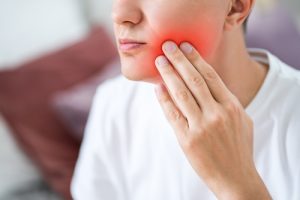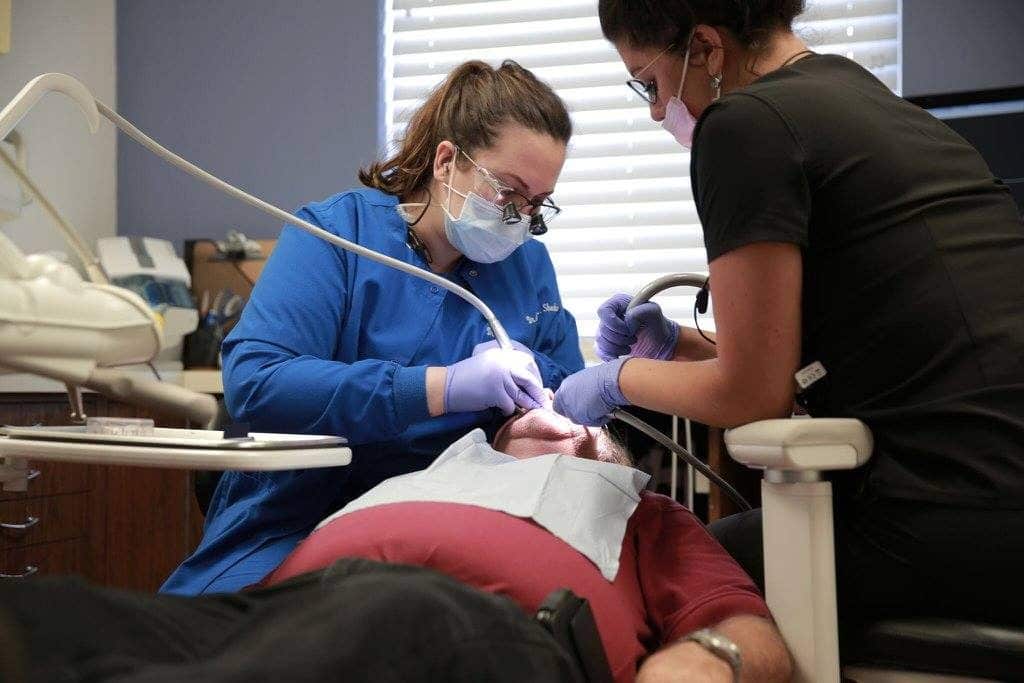Experience Swift Relief for Dental Emergencies in Waterford, MI
 Dental emergencies can strike at any time, often when you least expect them—and knowing how to respond can make all the difference in protecting your oral health. Whether you’re dealing with a knocked-out tooth, severe tooth pain, or a broken crown, prompt treatment is necessary. At Oakland Family Dental, one of the top emergency dentists in Waterford, MI, Dr. Amanda Sheehan and her compassionate team are here to provide fast, effective care when you need it most. If you’re in Waterford or nearby areas like Clarkston, Pontiac, Auburn Hills, or West Bloomfield, don’t wait—contact our Waterford office by calling (248) 674-0384 for emergency dental services you can count on.
Dental emergencies can strike at any time, often when you least expect them—and knowing how to respond can make all the difference in protecting your oral health. Whether you’re dealing with a knocked-out tooth, severe tooth pain, or a broken crown, prompt treatment is necessary. At Oakland Family Dental, one of the top emergency dentists in Waterford, MI, Dr. Amanda Sheehan and her compassionate team are here to provide fast, effective care when you need it most. If you’re in Waterford or nearby areas like Clarkston, Pontiac, Auburn Hills, or West Bloomfield, don’t wait—contact our Waterford office by calling (248) 674-0384 for emergency dental services you can count on.
Exceptional Care When You Need It Most at Oakland Family Dental
At Oakland Family Dental, we understand that dental emergencies can be stressful and overwhelming. That’s why we prioritize compassionate, timely care to help patients feel comfortable and supported every step of the way. Just listen to what one of our patients, Sharon P., had to say about her experience:
- “I walked into the office with an emergency visit. The staff took care of me right away. I had to have oral surgery. I was made as comfortable as possible. The patient care I received was the best I have ever had!!!! The follow up care was awesome too. Everything was great from the front desk, the dental assistants, and the doctor. I want to thank them again for the amazing job.”
Sharon’s story is just one example of the personalized attention and high-quality treatment that our Waterford dentist and her team provide to every patient—whether you’re here for a routine visit, a dental bridge, or urgent care. We’re proud to serve the communities of Waterford, MI, and nearby areas like Clarkston, Auburn Hills, and Pontiac, with the same commitment to excellence.
What is Emergency Dentistry?
Emergency dentistry stands as an immediate and specialized branch of dental care aimed at addressing unforeseen and pressing oral issues. It encompasses prompt diagnosis, treatment, and management of acute dental problems that arise suddenly, causing severe discomfort, pain, or trauma. The objective of emergency dentistry revolves around swift relief from urgent dental conditions.
Common Dental Emergencies
 Emergencies in dentistry span various scenarios that demand urgent attention:
Emergencies in dentistry span various scenarios that demand urgent attention:
- Chipped, Cracked, or Broken Teeth: Occurring due to accidents, injuries, or unforeseen circumstances, these situations necessitate urgent dental care to prevent infection and safeguard dental integrity.
- Lost or Damaged Restorations: Instances involving broken dental fillings, dental crowns, or dental bridges require immediate care to avert discomfort and maintain oral health.
- Inflamed or Infected Gums: Swelling, pain, or the presence of abscesses on the gums signify potential infection, warranting immediate professional treatment to prevent further complications.
- Knocked-Out Teeth: Timely action and expert dental care play a critical role in salvaging a dislodged tooth. Ensuring the tooth remains moist and seeking immediate dental assistance heightens the possibility of successful reattachment.
- Moderate to Severe Toothaches: Persistent, intense tooth pain often indicates an underlying issue that requires urgent evaluation and prompt treatment to alleviate discomfort.
Same-Day Dental Emergency Appointments
During dental emergencies, the element of time holds paramount importance. Your Watford dentist prioritizes same-day appointments tailored to cater specifically to individuals in immediate need. These expedited appointments ensure rapid assessment, timely intervention, and relief, thereby averting further complications or prolonged discomfort.
Tips for Handling Dental Emergencies
Contact Dr. Sheehan Immediately
Call your Waterford dentist as soon as the dental emergency occurs. Dr. Sheehan can provide guidance, schedule immediate appointments, and offer crucial advice.
Preserving Dislodged Teeth
If a tooth gets knocked out, handle it carefully by the crown (top part). Keep it moist by placing it in milk or saliva to increase the chance of successful reattachment.
Managing Toothaches
For severe toothaches, avoid using aspirin directly on the gums as it may damage tissues. Instead, rinse with warm water and use over-the-counter pain relievers as directed.
Handling Broken or Chipped Teeth
Refrain from trying to repair a broken tooth by yourself. Instead, rinse your mouth with warm water and place a cold compress on the affected area to reduce swelling.
Addressing Soft Tissue Injuries
If there’s bleeding from the lips, cheeks, tongue, or gums, apply pressure using gauze or a clean cloth to control the bleeding. Seek immediate dental care if bleeding persists.
Be Prepared for Emergencies
Maintain a small dental emergency kit with essentials such as gauze, a small container with a lid, pain relievers, and the contact information of your dentist.
Avoid Self-Treatment
While awaiting professional care for a dental emergency, avoid trying to fix the issue yourself. Improper handling may exacerbate the problem and complicate treatment.
Seek Professional Dental Help
Dental emergencies require the expertise of a professional. Schedule an emergency dental visit with our Waterford emergency dentist by calling (248) 674-0384 to prevent further complications and ensure proper treatment.
Trust Oakland Family Dental to Handle Your Dental Emergency
Dental emergencies can happen when you least expect them, but having a trusted dental team on your side makes all the difference. Our trusted dentist in Waterford, Dr. Sheehan is here to provide prompt, compassionate care when you need it most. Whether you’re dealing with a severe toothache, a broken tooth, or another urgent dental issue, our team is ready to restore your comfort and peace of mind. We proudly serve patients in Waterford, Clarkston, Pontiac, Auburn Hills, and the surrounding communities. Don’t wait in pain—contact the best emergency dentist in Waterford by calling (248) 674-0384 for immediate help with your dental emergency!

